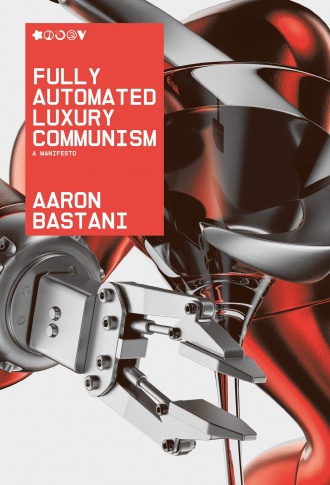This is the last article you can read this month
You can read more article this month
You can read more articles this month
Sorry your limit is up for this month
Reset on:
Please help support the Morning Star by subscribing here
Fully Automated Luxury Communism
by Aaron Bastani
(Verso, £14.99)
“THE FUTURE is already here, it’s just not very evenly distributed,” science-fiction writer William Gibson once famously remarked and that’s the contention of Aaron Bastani’s first book.

No longer content with merely making progressive modifications to the capitalist-realist status quo, fully automated luxury communism — Bastani's coinage — has become a rallying call for a new left that demands everything.
Bastani seeks to flesh this out not only as a demand but a necessity to deal with the overlapping crises of capitalist stagnation, resource scarcity, automation and climate breakdown.
The author is one of the founders of Novara Media, the radical-left media platform that grew out of the 2010 student movement.
It sought to bring a theoretical rigour to left-wing activism and his book is the articulation of that project for a mainstream audience as well as functioning as a futurology for the left, a handbook for the technological innovations that are going to shape coming struggles.
After a brusque analysis of how we’ve reached the current neoliberal impasse, Bastani takes us on a dizzying tour of pioneering research in the fields of robotics, asteroid mining, synthetic food, gene editing and renewable energy, forcefully illustrating that the solutions are already in the making for a post-scarcity world.
His limpid prose, fuelled by an infectious revolutionary elan, adroitly synthesises these big ideas for lay readers and deftly elucidates the continued relevance of Marx’s writings. Occasionally, his fervent conviction can come across as a messianic belief that these tech trends will themselves save us.
The schema of the three “disruptions” in agriculture, industry and now information makes for an instructive piece of myth-making but it’s a fragile one. Information may want to be free to devastate the price mechanism but the forces arrayed against it remain vast.
That is the central tension of the book — if a future of plenitude is embedded into current productive processes, how do we wrest them towards a communist direction?
It is not until the closing sections that Bastani goes some way to address this in political proposals that proceed from the fundamental principles of establishing an electoral “luxury populism” and international commitments to decarbonisation before percolating down to the municipal protectionism embodied by the Preston Model of local-council procurement, aided by universal basic services.
These prescriptions are all lucidly laid out and convincing. But they do feel somewhat disconnected from the preceding chapters, as if they’re the beginnings of a different book entirely. What this illustrates is the challenge to bridge this theoretical crevasse between our present and Bastani’s vision of fully automated luxury communism.
Nevertheless, the book serves as a vital broadening of our political horizons and it’s resolute in arguing that the left can and must seize the future and redistribute it post-haste.








